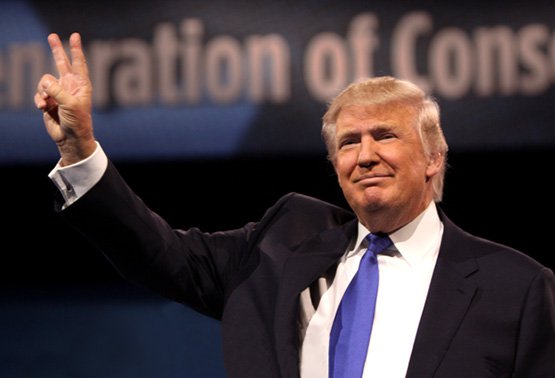As the investigation into Russian meddling in the 2016 presidential campaign continues, special counsel Robert Mueller is reportedly looking at President Donald Trump’s real estate dealings, particularly those during and immediately before the campaign. Mueller’s team has broad latitude in investigating any crimes his team discovers and “any matters that arose or may arise directly from the investigation.”
Thus far, the investigation has resulted in the indictment of two Trump campaign associates: Paul Manafort, who was campaign chairman through the Republican primaries and convention, and Rick Gates, have been charged with a dozen counts ranging from conspiracy against the United States, to money laundering, failing to report millions in income, several financial issues, and lying to investigators. A key part of that investigation was Mueller’s access to the income tax returns for Manafort and Gates. (Manafort has since been found guilty of 8 counts and Gates has plead guilty; while National Security Advisor Michael Flynn, campaign aid George Papadopoulos, and campaign-related persons such as Richard Pinedo and Alex van der Zwann have also plead guilty to a variety of crimes against the U.S.)
The IRS has announced that it is sharing tax return information for not only those individuals, but also for other “key Trump campaign officials.” In the case of Manafort, Mueller’s team went through at least 11 years’ of financial and tax data. If a taxpayer is alleged to have evaded taxes, there is generally a six year window for pursuing criminal charges. However, the exact dates of the offenses may vary if the taxpayer continued to hide or launder income, or reported false income in subsequent years.
Early in the presidential campaign, Trump said he would eventually disclose his tax returns, but has rebuffed requests since he was elected. All presidential candidates and presidents have done so for the past 40 years, with the exception of Trump. While he has claimed he is under audit, the IRS does not confirm such issues, and tax professionals say that would not prevent a person from disclosing their tax returns.
Trump’s privacy concerns have some observers insinuating unreported or irregular financial ties to Russia or other unreported income. If Mueller has access to Trump’s documents, the issue of Russian influence in the election could take a side seat to potential tax and financial related charges. Trump has previously said that investigating his business dealings would be “crossing the line,” but Mueller’s team seems more focused on that area, and recently requested information on a proposed Trump Tower hotel location in Moscow that was being pursued by the Trump company.
If Mueller’s investigation into Trump does result in evidence of financial crimes, however, can a sitting president be prosecuted? In 1974, during the Nixon Watergate scandal, the U.S. Supreme Court heard arguments on the matter, but did not rule. However, most legal scholars say the president may be immune from criminal prosecution while in office.
“The framers [of the Constitution] implicitly immunized a sitting president from ordinary criminal prosecution,” Yale law professor Akhil Reed Amar told the New York Times. However, the president can be impeached for such matters, and if removed from office, could then be pursued on the criminal charges.
Newly released financial documents about offshore account holdings by many of the world’s elite has amplified calls for Trump to publicly release his income tax returns. The Paradise Papers, named so because they emerged from an off-shore law firm Applebee, show an extensive network of shell companies and tax minimization schemes by some of the world’s elite. The law firm has offices in Bermuda, the British Virgin Islands, the Cayman Islands and other locations that are sometimes associated with secretive banking practices.
Within the 13.4 million document trove of the Paradise Papers are more than 120,000 individuals and companies that have been tied to offshore accounts and shell companies, that some financial experts say are used to avoid reporting income taxes in various countries, including the U.S. While Trump has not been cited in the papers as yet, others that include the U.S. Secretary of Commerce, Wilbur Ross, a Trump appointee.
The New York Times, part of the International Consortium of Investigative Journalists that obtained the papers and is investigating them, recently reported that the financial records relating to Ross also show possible connections to a Russian transportation firm with ties to Vladamir Putin. Prior to his appointment as Commerce Secretary, Ross was a private equity fund investor and banker.
A spokesman told the Times that Commerce Secretary Ross will “recuse himself from any matters focused on transoceanic shipping vessels, but has been generally supportive of the administration’s sanctions of Russian and Venezuelan entities. Secretary Ross has never had to seek, nor received, any ethics exemption and he works closely with Commerce Department ethics officials to ensure the highest ethical standards.”
“The Paradise Papers shows how these billionaires and multinational corporations get richer by hiding their wealth and profits and avoid paying their fair share of taxes,” said U.S. Senator Bernie Sanders, who was a 2016 Democratic candidate for president.
The Paradise Papers also include references to U.S. Secretary of State Rex Tillerson and Trump’s chief economic adviser Gary Cohn, but there have been no allegations of improprieties.
Thanks for reading CPA Practice Advisor!
Subscribe Already registered? Log In
Need more information? Read the FAQs
Tags: Income Taxes, Taxes




